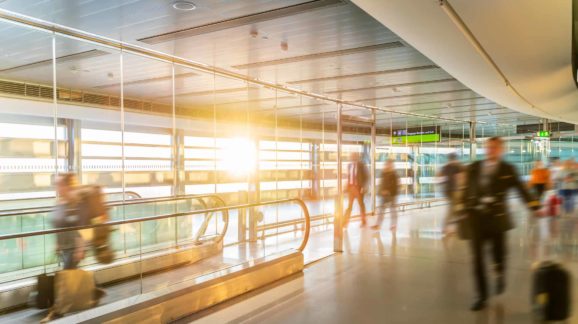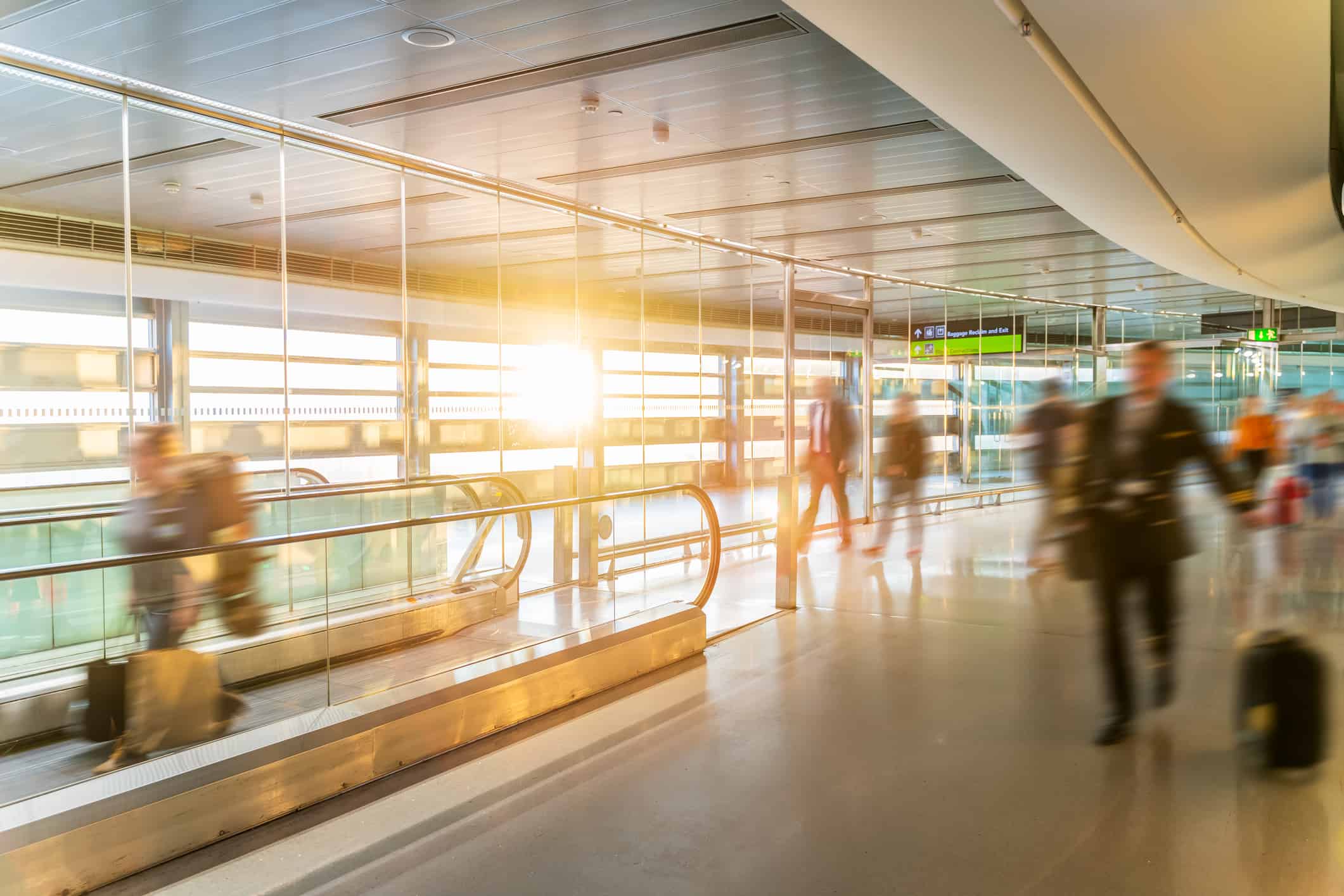Department of Homeland Security’s “Trusted Traveler” Programs Now Privilege Mexican Nationals over U.S. Citizens from New York

 Late yesterday, it was reported that the Department of Homeland Security has suspended entry of New Yorkers into four “trusted traveler” programs. Today, the department released the letter it sent to the New York State Department of Motor Vehicles announcing this sudden change in policy.
Late yesterday, it was reported that the Department of Homeland Security has suspended entry of New Yorkers into four “trusted traveler” programs. Today, the department released the letter it sent to the New York State Department of Motor Vehicles announcing this sudden change in policy.
Current trusted traveler programs came about following the great expansion of the national security state following the September 11, 2001, terrorist attacks. In a nutshell, screening for both domestic and international travelers was reoriented to presume everyone was a potential terrorist, and then carving out screening exceptions and creating expedited screening lanes for those who willingly submit and pay for enhanced pre-screening.
In June 2019, New York State enacted its so-called “Green Light Law” (officially the Driver’s License Access and Privacy Act), which made New York the 13th state to authorize the granting of driver licenses to undocumented foreign nationals. After surviving a round of challenges in court, it became the law of the land in the State of New York in December 2019.
Among other things, New York’s Green Light Law amended Section 201 of New York’s Vehicle and Traffic Law to add new subdivision 12, which prohibits the state Department of Motor Vehicles from disclosing driver licensing information to “any agency that primarily enforces immigration law or to any employee or agent of such agency” unless ordered to do so by a federal court.
Denying carte blanche access to New York’s DMV database really ticked off the Department of Homeland Security. Their response? Announce they are barring New York State residents from enrolling in the following trusted traveler programs:
- Global Entry, U.S. entry by air, land, and sea from all international origins; open to U.S. citizens, U.S. lawful permanent residents, and select foreign nationals.
- NEXUS, U.S. entry from Canada by air, land, and sea; open to U.S. citizens, U.S. lawful permanent residents, Canadian citizens, Canadian permanent residents, and Mexican nationals.
- SENTRI, U.S. entry from Canada and Mexico by air and land; open to U.S. citizens, U.S. lawful permanent residents and all foreign nationals.
- FAST, U.S. entry and exit by land for commercial truck drivers crossing the Mexican and Canadian borders; open to U.S. citizens, U.S. lawful permanent residents, Canadian citizens, Canadian permanent residents, and Mexican nationals.
For personal and typical business travel, most people opt for the expansive Global Entry program. While it primarily covers U.S. citizens and permanent residents, citizens from the following countries are also eligible for enrollment in Global Entry: Argentina, Australia, Canada, Colombia, Germany, India, Mexico, New Zealand, Panama, Republic of Korea, Singapore, Switzerland, and Taiwan.
You may by now have noticed something strange (see the title of this post or bolded words if you haven’t): for all four international trusted traveler programs, Mexican nationals are eligible to enroll. Under the new policy from the Department of Homeland Security, U.S. citizens from New York are ineligible to enroll. This is an odd look for a department that has spent a great deal of time during this administration trying to crack down on lawful and unlawful immigration from Mexico and other Latin American countries.
New York Governor Andrew Cuomo’s administration has called this move by the Department of Homeland Security “retaliation” for New York’s Green Light Law. Given that the federal regulations governing Global Entry program eligibility at 8 C.F.R. § 235.12 point to no inherent conflict, and there is no known national security threat or plausible risk analysis to support the Trump administration’s abrupt change in policy for New Yorkers, I suspect the Cuomo administration is right.
This decision from the Department of Homeland Security will almost certainly be challenged as being in violation of the Administrative Procedure Act’s prohibition against federal agency actions that are “arbitrary, capricious, an abuse of discretion, or otherwise not in accordance with law” at 5 U.S.C. § 706(2)(A). It appears the Trump administration may well have violated federal law by retaliating against New York State for its immigrant driver license policy, all while ironically privileging Mexican and other foreign citizens over Americans who happen to reside in New York.
ADDENDUM: Some have attempted to defend the justification from the Trump administration that barring New Yorkers entry to trusted traveler programs is consistent with longstanding federal policy given that New York State will not provide the department with open access to its Department of Motor Vehicles database. There are two problems with this line of mistaken reasoning.
First, the database only includes personally identifiable information of New Yorkers who have chosen to obtain either a state-issued driver license or non-driver ID. New York has the lowest driver licensing rate in the country, below 60 percent. While many of those who do not drive do then opt to obtain a non-driver ID from the DMV, it is not a requirement and many choose not to obtain one or keep it current.
Second, passports satisfy the photo ID requirements of most of the trusted traveler programs, including Global Entry (there are caveats, but the one hard exception is FAST, which is for cross-border commercial truck drivers). State-issued photo IDs are not required to obtain a U.S. State Department-issued passport.
The Department of Homeland Security would have been on better policy and legal footing if it had instead announced it was no longer accepting New York State-issued IDs to meet their trusted traveler photo ID requirements, along with additional verification requirements. This surely would have been extremely disruptive to international travelers from New York, which appears to be the intent. But for whatever reason, department officials decided to choose a patently unreasonable retaliatory policy that federal judges are less likely to view kindly. Contrary to the defenders of the Department of Homeland Security, it is rewriting eligibility on the fly and bizarrely refusing to accept federally issued photo IDs from New Yorkers seeking to enroll in Global Entry and other trusted traveler programs.